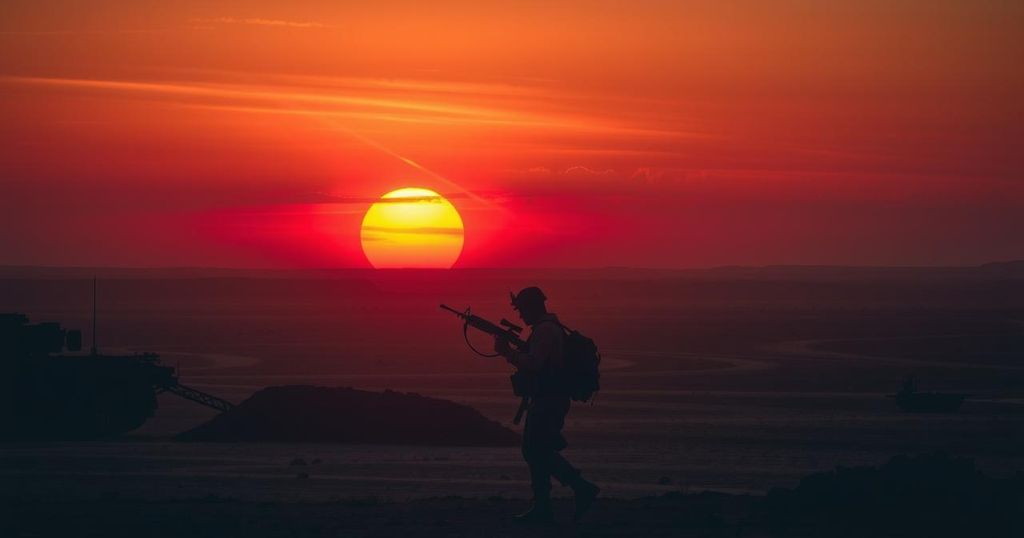Russia’s Strategic Negotiations for Military Presence in Post-Assad Syria

The fate of Russian military bases in Syria is uncertain following the departure of Bashar al-Assad. Interim President Ahmed Sharaa seeks to renegotiate lease agreements while addressing Syria’s substantial foreign debt. The discussions may help to secure ongoing Russian military and economic support, even amid challenges posed by former rebel control and broader geopolitical tensions in the region.
In recent years, Russian soldiers stationed at Hmeimim Air Base in Syria formerly roamed freely, utilizing their military access for operations against Islamist rebels opposing Bashar al-Assad’s regime. The landscape has shifted, with groups of former rebels, particularly Hayat Tahrir al-Sham (HTS), now controlling the region and monitoring Russian activities. Convoys from the base must notify these guards before departing.
With Assad’s regime now in the past, the future of Russian military bases hangs in a precarious balance under the leadership of interim President Ahmed Sharaa. He seeks to renegotiate the existing lease agreements for both Tartous Naval Base and Hmeimim Air Base, aimed at ensuring Russia remains influential while attaining favorable terms. The interim government looks for Russian aid not just militarily, but also economically.
The strategic relationship between Russia and Syria has become intricate, especially after Assad’s exit in December, leading to negotiations involving both Syrian and Russian officials. The discussion includes the Syrian state’s external debt, which has swelled to roughly $20-$23 billion, with debts owed to Russia being a particular focus. There are also concerns around the potential return of Assad to Syrian politics, although this does not seem to obstruct renewed cooperation significantly.
Despite U.S. hesitations regarding Russian influence in Syria, Israel appears to favor continued Russian military presence as a counterbalance to Turkish expansions in the region. This situation underscores the delicate geopolitical landscape as new opportunities for dialogue and potential alliances emerge in a post-Assad Syria.
A significant aspect of Sharaa’s discussions with the Russian delegation included requesting the cancellation of debts incurred during Assad’s tenure and the recovery of Syrian funds believed to be held in Russia. Russian officials have denied the existence of such funds, indicating a complex bargaining process that acknowledges past grievances but focuses on future cooperation.
Russia’s involvement in Syria could also pivot towards humanitarian support rather than direct financial reimbursement for the destruction caused by the war, with Putin previously suggesting that the military bases could serve as humanitarian aid distribution points—though evidence of such operations remains minimal. Meanwhile, the lasting implications of the Syrian war have left the nation in ruins, with millions displaced and infrastructure devastated.
The significance of Russian military bases in maintaining Moscow’s influence cannot be underestimated, particularly against the backdrop of a fractured Syrian landscape where local economies continue to struggle due to ongoing conflict. Local businesses, once frequented by Russian soldiers, now face bleak conditions, reflecting the broader humanitarian crisis in the war-impacted country as it seeks reconstruction and stability after years of violence.
In summary, the future of Russian military bases in Syria lies in complex negotiations with the new Syrian leadership. As President Sharaa seeks better terms for Russian influence while addressing significant debts and the humanitarian needs of the war-torn nation, these developments will shape the geopolitical landscape in the region. The transitional dynamics post-Assad signal a potential for renewed engagement between Russia and Syria, with the need for collaboration on various fronts, including economic recovery and military strategy.
Original Source: www.usnews.com







